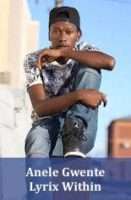For some people, the word ‘rape’ brings horror and shock that eventually fades once they are done hearing or reading it. But this is not the case with 25-year-old Rudzani Racheal Bereda, a victim of rape and survivor of the long-lasting pain and trauma.
Rudzani grew up staying with her maternal grandparents and aunts in an extended family at Miḓoroni village in Limpopo.
“My mother was staying in another village but my grandparents provided me with the kind of love and care that any child needed. I felt at home and the environment was conducive for a child to grow in. I loved playing with other children outdoors and we enjoyed each others’ company.”
That was until one day when a horrific incident changed her whole life. She remembers clearly that sunny afternoon when she returned home from school. She was in Grade Two. She took off her school uniform and dressed into casual clothes. There was her ration of food in the kitchen.
“I enjoyed my meal and went out to play with another child in the next street. It was just a five minutes’ walk from our home. I knocked on the door. The sister’s older brother opened from the inside and I told him I had come to play with his younger sister, who was my friend by the way. He asked me why I was talking with him from outside and that I should enter. Still standing right there, he pulled me … with force … and dragged me into what I believed to be his bedroom and …. and … raped me …”
After viciously raping her, he gave her grapes from their vine and told her not to tell anyone or else he would do it again. He was a criminal who was always in and out of prison due to different crimes but wouldn’t go to jail for long each time.
“Every time he was arrested, he would be seen walking the streets the following morning.”
Fresh tears flow down Rudzani’s cheeks as she recollects the harsh memories of the day which she will never forget in her life. Even though she occasionally cries sometimes when she tells this sad story, she says it is not only because of the pain which comes with being raped.
“It pains me because I know that somewhere in another village, in a township, in the bushes or town there’s another child who is being raped by an adult who knows well the severity and cruelty of their heartless action.”
“When he raped me, I was wearing this other dress, and I had to throw it and the underwear which I was wearing inside the pit toilet. I then took a bath and changed into clean clothes. But I felt, even after I had bathed, that I was not clean anymore.”
From the day of the tragic incident, Rudzani had to avoid using the perpetrator’s street and use long-winding routes for fear of being dragged into the house where she would get raped again.
“I didn’t tell any person about the incident. While I had my grandmother and aunts at home, I just didn’t know how to tell them. In between the rape – which occurred while I was seven years old – and Grade 12, I found some brief breath of fresh air from taking part in the Tshivenḓa traditional dance troupe known as tshigombela. I was malogwane (instructor or leader) and I spent more time thinking about tshigombela.”
However, the memories of the rape incident seeped into her mind when she was in Grade 12. It interfered with her concentration and she lost focus on studying.
“I poured my heart to my friend and classmate, (now) Dr Marubini Mauḓa who also informed our educator. The educator was quite supportive, and she advised me to tell my grandmother about the incident as a way of finding a healing. I was referred to a social worker, who further booked me in for a clinical psychologist for counselling. I found the counselling helpful and therapeutic.”
Rudzani further finds wisdom in the Tshivenḓa saying that goes: ‘Khali yo bikaho a i fani nayo shululelwaho’. In her relative interpretation, the saying means that when someone who has been through hardships encourages another who is going through similar circumstances, chances are that the encouragement or words of comfort are likely to strike the right chord or home, as they are a living proof that it is all possible to live a meaningful life even after tragedy has struck.
“I want to speak with people – including children – about issues of child sexual abuse. Children are raped almost every day. Do they tell their guardians? Not all of them do – and keeping quiet is going to do them more psychological harm in the future. I suffered more trauma and stress because I didn’t tell my family about the rape.”
In spite of the harsh incident which stayed with her and made her see men as a sign of danger or harm, she tried to focus on rebuilding her life and invested some faith in one man in 2012.
“We sometimes have our fights and so on. But they are all normal in that it is not abuse but misunderstandings between partners. I love him. We’ve been together since the year we met, and we’re happy.”
Rudzani managed to complete her Grade 12, obtained a diploma in electrical engineering from a training and vocational education centre, and worked for some time as a lecturer in teaching electrical engineering.
“The rape was meant to derail my life and strangle my future, but I knew I had to rise and reclaim my space in society no matter what. I am currently an ambassador for Miss Eagle South Africa 2018 beauty pageant. Here, on this newly found platform, I am daily challenged to use the opportunity to tell others that in spite of emotional injuries sustained in the past, anyone can still fly like an eagle.”
***
Tell us: What did you learn from Rudzani’s heartbreaking story?





